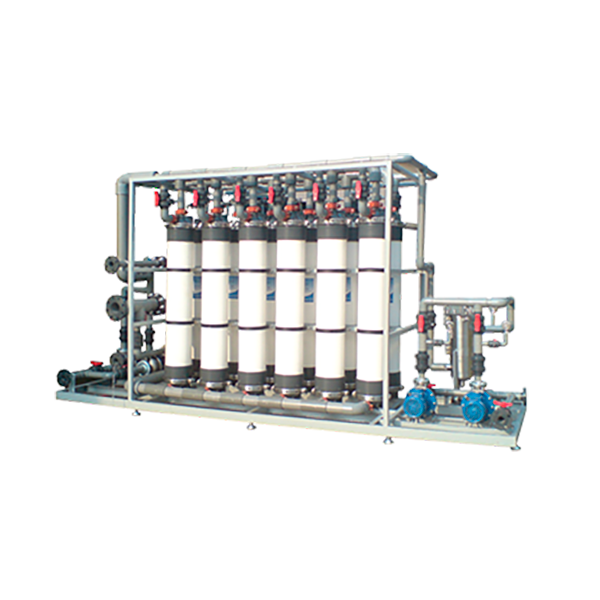Ultrafiltration is a purification process that involves creating increased pressure as water passes through a special membrane element. Under this pressure, water flows through the ultrafiltration membrane, while suspended and organic substances are retained on it.
What is ultrafiltration used for?
For truly effective water purification using methods like ion exchange, reverse osmosis, and nanofiltration, proper pretreatment is required, which can be achieved through ultrafiltration. In combination with the aforementioned water purification methods, it allows for the production of high-quality drinking water that meets the highest standards from both groundwater and surface water.
What problems does ultrafiltration solve?
Ultrafiltration is a relatively new method of water purification. It was developed out of the need to address the problem of contaminated water being supplied to private homes and apartments. This applies not only to water supply systems but also to direct water sources. Using ultrafiltration systems, it is possible to obtain purified water from open water sources (rivers, lakes, swamps, etc.) that is suitable not only for technological needs but also for drinking purposes.
Traditional water purification methods, as well as sedimentation, do not achieve the required water quality. Additionally, such filters quickly become clogged. If they are not cleaned or replaced in a timely manner, they not only cease to be effective but can also become a serious hazard, promoting the growth of pathogenic microorganisms.
Advantages of ultrafiltration
Superior purification quality
Unlike traditional purification methods, ultrafiltration allows the removal of impurities such as colloidal silica, oxidized iron, manganese, and organic substances from water. This is made possible by the use of a membrane element with tiny pores.
Natural disinfection
Ultraviolet treatment, chlorination, and ozonation are all very effective methods, but they are also highly unsafe. In the process of ultrafiltration, microorganisms are physically removed from the water. The membrane’s pores simply retain them, significantly reducing their concentration.
Safety for plumbing and household appliances
Since the ultrafiltration method removes virtually all suspended particles, it significantly increases the lifespan of plumbing systems and various devices that use water. Even with prolonged use, no deposits form inside the pipes, making these systems almost everlasting.
Full automation
Once you install an ultrafiltration system, you can forget about it for a long time. Filtration and cleaning are carried out automatically, based on parameters set in advance by the user.
Eco-friendliness
No chemicals are used in the filtration process. Additionally, ultrafiltration produces significantly less water waste compared to traditional purification methods.
The popularity of this method is growing worldwide. This is no coincidence: due to its high purification quality and relatively low equipment cost, ultrafiltration is used in virtually all areas of water treatment
Ease of installation
An ultrafiltration system can be installed both vertically and horizontally. Its installation does not require specialized skills and is possible even in hard-to-reach areas.
The list of advantages provided is not exhaustive. If necessary, you can receive free consultations from our qualified specialists, who will help you select the required equipment.
